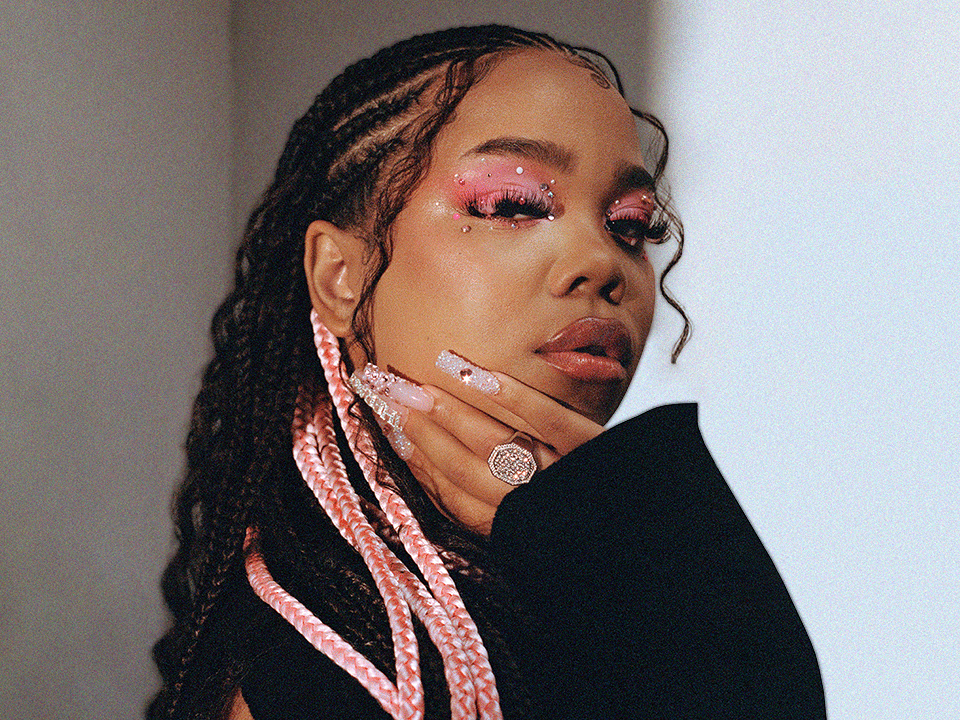How Zoe Wees Deals With Post-Concert Loneliness
The “Control” singer shares how epilepsy and anxiety impact her mental health.
Singer and songwriter Zoe Wees entered the music scene through Germany’s The Voice Kids in 2017 and immediately became an international star. Since then, she’s gone on to have a viral TikTok hit with “Control” and is now enjoying the release of her debut album, Therapy.
The new music lets Wees get vulnerable with subjects like loneliness and growing up without a father on tracks like “Hold Me” and “Daddy’s Eyes,” respectively. “It's very personal and it's very deep, and I always loved to open up and tell people my stories to make them stronger because I know a lot of people might go through the same,” she tells Wondermind. “Almost every song is about mental health ... and [I hope] people just take a lot of strength from this album.”
Here, the singer talks about alone time, finding confidence, and managing her anxiety and epilepsy.
[Sign up here to never miss these candid conversations delivered straight to your inbox.]
WM: How are you doing lately? How's your mental health?
Zoe Wees: I'm doing good. There’s a lot of pressure because my album just came out, but I'm OK. I'm here. I'm good.
WM: Were there any songs or lyrics in particular on the album that felt especially healing or helpful for you to create?
ZW: I have a song on this album called “Hold Me,” and the song is about being so lonely and so very close to giving up. The song is very hopeless. Everyone is always telling me, “You have to have a happy end,” but it's not always like that. Sometimes you just go through really bad things and it's not changing and it's fine. There's no happy end always.
WM: Are there specific situations or times when you tend to feel lonely?
ZW: Every time I come off stage, I feel really lonely. It's a lot of people and I get so much love and I feel so loved. And when I get off stage, it's like everything's back to normal and I can't handle this feeling.
WM: Do you have any self-care practices that you try to do when you're alone?
ZW: I love doing my skincare, getting my makeup done, doing my hair. Sometimes I just get ready and I'm not going anywhere.
WM: You also talk about anxiety and depression on tracks like “Control.” Can you tell us a little more about your mental health journey?
ZW: When I was 9, I got diagnosed with epilepsy and this is when I started therapy, and I'm still doing therapy. I'm still working on healing myself. I'm still going through my anxieties. It's funny, but I kind of enjoy this process because I always let it happen. I am not trying to push my anxieties away. I just let it happen and just sit there and see how it feels. This helped me a lot to deal with that, and I kind of enjoy this process now. … I'm not trying to get out of the situation. I just let it happen until my anxiety sees that there's no reason to be there or my body needs a break. I'm trying to hold it, and I'm trying to let it happen and just let it flow through my body. This is how I started to actually be OK with this feeling.
WM: Do you mind sharing more about the connection between your epilepsy and your anxiety?
ZW: Sometimes I don't know if it's a seizure or just an anxiety attack. And this is the worst feeling to me because my anxieties, they feel exactly like my seizures. So sometimes I get really scared because I don't know if it's a seizure or not. So it's really hard. And also my anxieties came with my epilepsy. Before that, I never had an anxiety attack or anything like that [before].
WM: On your album you also talk about insecurities. What’s an insecurity you're proud of overcoming or doesn’t hold you back anymore?
ZW: My body. I was so insecure about my body. But now, I posted a picture on Instagram where you could see a little more skin, and I'm so proud that I can finally take pictures and look at it and be happy with my body. I mean, it's not perfect, but I started loving it. I'm proud of that.
WM: What helped you get to that point?
ZW: I guess it's just my friends. The people I'm surrounded by has changed a lot. … I feel like they're also strong and confident. They're not perfect at all, but to me, they're so perfect. They just love themselves, and it's just inspiring to be around them. … It kind of influenced me and inspired me to post stuff like that, to be confident, to love my body if they can do it too.
WM: Do you have any final messages about mental health or your music that you'd like to share?
ZW: I hope that my generation can change a lot and can help other people too. I want people to talk about [mental health], and I want people to see that there's actually something happening. I am so happy that we have artists like Billie Eilish, Selena Gomez, me, and so many other artists that finally talk about it. [The conversation is] going to change. We just have to get together, be strong. It's going to be fine someday.
This interview has been edited and condensed for length and clarity.
Wondermind does not provide medical advice, diagnosis, or treatment. Any information published on this website or by this brand is not intended as a replacement for medical advice. Always consult a qualified health or mental health professional with any questions or concerns about your mental health.




